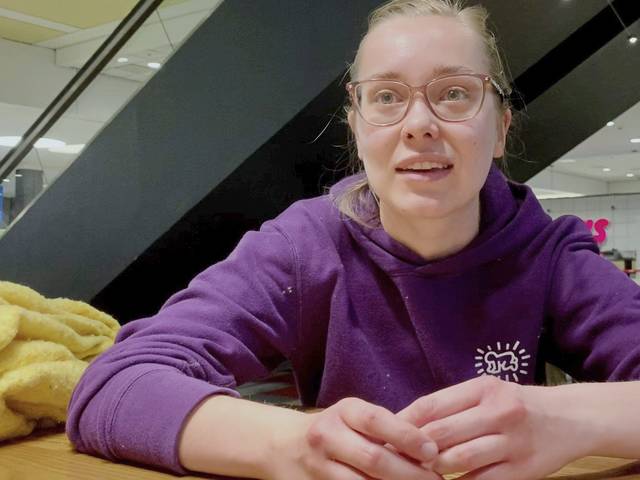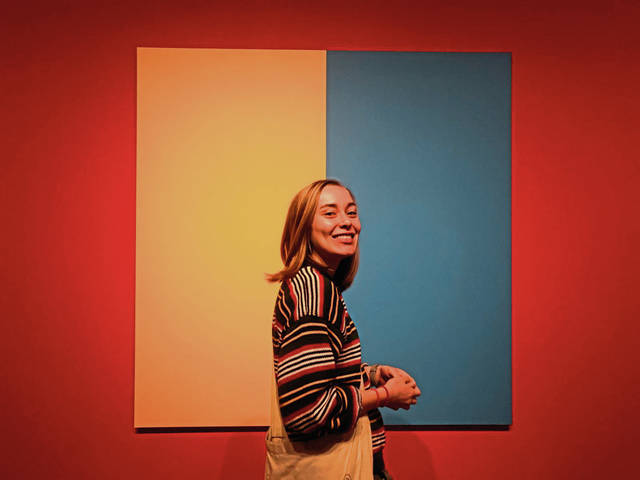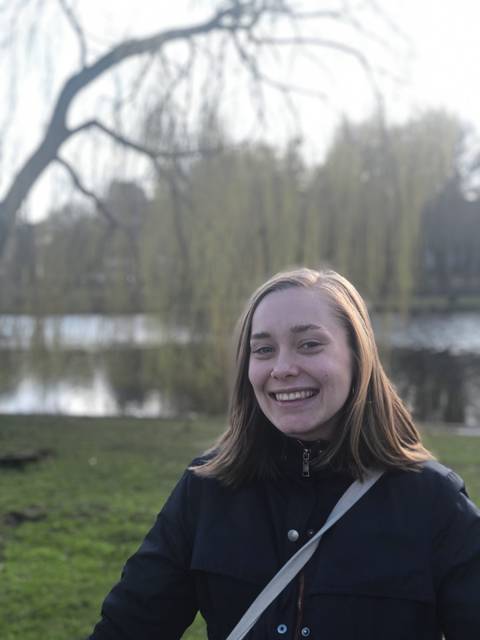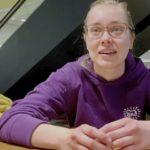Leah DeFlitch wasn’t sure what to expect when she boarded a plane in Amsterdam bound for her family’s Pittsburgh home early Sunday.
She soon learned her pilot wasn’t sure what was in store for the passengers, either.
It was only days after President Trump mandated health screenings for the novel coronavirus of travelers returning from much of Europe.
The 20-year-old Temple University undergraduate’s study abroad trip was cut short because of the global pandemic. As her plane got closer to touching down to connect in Detroit — one of 13 U.S. airports where travelers from more than two dozen European countries were forced to land over the weekend — the Delta Air Lines pilot’s voice came onto the loudspeakers.
“We don’t know what will happen when we land,” DeFlitch, of Greenfield, recalled the pilot announcing.
‘I don’t know if it was the most effective’
The pilot told everyone to fill out a health form they’d been given and to stay in their seats once reaching the gate. Infectious disease specialists with the Centers for Disease Control and Prevention would be coming on board.
“And that’s when the CDC came on, and I guess did a check?” DeFlitch said. “I don’t know what they did, because they didn’t ask anyone anything.”
Four CDC workers in bulky, full-face respirators entered the plane and moved around for about 10 minutes before leaving quietly.
For the next 2½ hours, DeFlitch and the other passengers proceeded through customs, then a separate line to be screened for covid-19 symptoms — namely, a fever. While waiting, she bonded with travelers, including several from a church volunteer group headed to Utah.
“Everyone understood we had to be in the situation, but I don’t know if it was the most effective,” DeFlitch said. “It was more efficient than I anticipated, just because I heard horror stories, but it was definitely a bizarre experience.”
How the airport screening worked
DeFlitch didn’t wait close to the six-plus hours reported Saturday amid bottlenecks at other major travel hubs such as Dallas and Chicago — but she and others certainly stood uncomfortably close together for hours after the flight.
“It was not social distancing at all,” she said.
The actual health screening probably took five to seven minutes. Federal employees wearing safety goggles and gloves took her temperature using a no-touch electronic thermometer.
She handed them the one-page form she filled out on the plane. The form asked where she’d traveled, which included Berlin and elsewhere in Germany. It asked if she’d had any fevers or other symptoms of covid-19 or knew of being near someone infected by it. It included lines for her email address, home address and passport number.
The strangest part of the process was that after customs and while waiting outside the screening rooms, everyone was told by federal agents they were not allowed to have their phones out to look at or use to take photos, DeFlitch said.
“If he saw someone pull out their phone, he’d yell at them and they’d put it away,” DeFlitch said, noting most people complied because they were too weary and tired to protest.
Deciding to leave Europe
DeFlitch initially wanted to stay in the Netherlands as long as she could.
Daily life there hadn’t changed much because of the coronavirus outbreak until just a few weeks ago. She lived in a dorm suite with four fellow students. One by one, they left. A friend of hers studying in Italy got out shortly before the country imposed travel restrictions on some 16 million people, more than a quarter of Italy’s population.
“I didn’t want to go home, but then everything was closing,” DeFlitch said. “And then the museums closed, and that was a triggering point for me, because I was like if I can’t be here and do things, then I might as well just go home.”
DeFlitch decided to book a flight back to the U.S. on Thursday to avoid getting stuck in Amsterdam indefinitely. Luckily, because she had an existing return flight scheduled, she was able to snag one home for about $200 more than her initial purchase. Friends without return trips confronted one-way ticket prices as high as $2,000 to $3,000.
“The ability to book a flight at a moment’s notice is a huge privilege,” she said.
Onto self-quarantining as her ‘duty’
DeFlitch believes she may able to complete her study abroad classes online and still get credit toward her neuroscience degree, but she might lose out on the rest of the money she spent on the program, including housing costs.
She still has no symptoms of covid-19.
But she said she’ll be sure to heed the guidance of federal screeners and avoid going out in public for at least a few weeks or more.
“I do plan on staying home as much and quarantining as much as possible — because even though it’s less of a problem for me, I don’t want to pass it on to other people,” she said. “I feel like that’s my own duty.”













